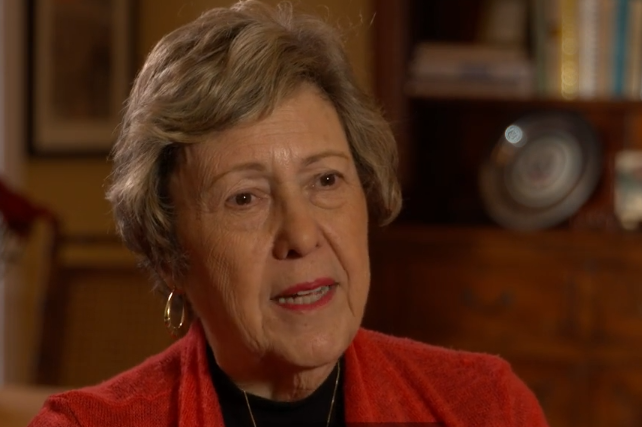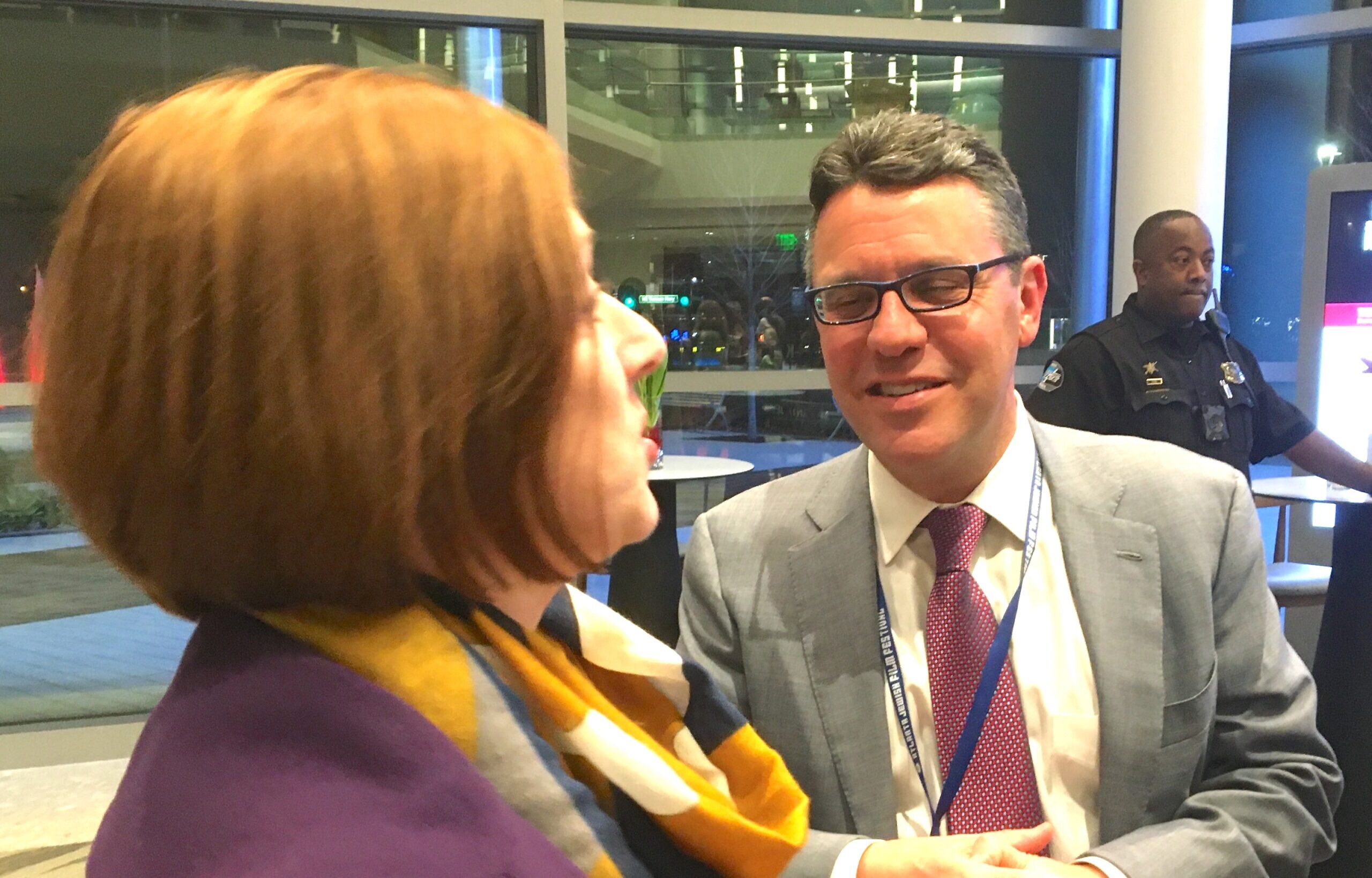Blank and Frank Look Back Over AJFF’s 20 Years
Sherry Frank and Kenny Blank, two leaders of the AJFF, reflect on its 20 years of growth and evolution.
Before the Atlanta Jewish Film Festival began two decades ago, the American Jewish Committee sponsored film programs for its members in places such as The Temple, where a rabbi or community educator would lead a discussion afterward.
But around the year 2000 there was talk of the need to create what has become one of the largest Jewish film festivals in the world. We asked Kenny Blank, executive director of the festival, and Sherry Frank, executive director of the American Jewish Committee when the festival was founded and a longtime AJFF board member, to discuss the growth of the festival over the past 20 years.
AJT: How did the festival originate?
Frank: Well, about 20 year ago Cookie Shapiro, the chair of the AJC board at the time, was going back and forth to California and just really pushing us to do a Jewish film festival.

So we met with Joey Reiman, who was a public relations expert here, and we came up with a theme, “Not another night at the movies.” He was also the one who developed the logo that we still have today, the iconic director’s chair with a Jewish star on the back. The first published descriptions of the films that year was really just a piece of paper folded in fours.
From the beginning we had huge community support. That first year we sold almost 2,000 tickets.
Blank: Even in those early years, the festival already had a certain natural momentum behind it. The community was longing for this kind of connection and cultural event. The response I think surprised everyone in the early years, even before I was formally involved. So when I got involved in the first few years after the festival began, it was like boarding a speeding train that was already well on its way.
AJT: How did you get involved in the AJFF?
Blank: I first became involved, actually, as a volunteer. I was a TV news producer at WXIA here. I got involved in the second or third year of the festival as a member of the screening committee that makes the initial selection of films. And around that time, because of the festival’s growth, it was already beginning to outpace the American Jewish Committee’s in-house capacity to manage the growth and to give it the really dedicated oversight and management that it needed. There was a meeting of the minds and I became the first full-time executive director. It was for me, professionally, a great opportunity.
AJT: Did it help once you became executive director to be a member of the Blank family?
Blank: I have no doubt that being a member of a prominent Atlanta family has opened up some doors and opportunities that have allowed me to bring some value to this film festival and recruit a high caliber of leadership to our board and to our committees and to assemble all the components that have made the AJFF a world-class film festival.
There’s been a lot of resources that are available to tap into because of relationships and because maybe they’ll take a call from Kenny Blank, that they wouldn’t maybe take from someone else. But also, I think people respond to passion and leadership. And I think anyone who has the kind of enthusiasm for the work that I do, I think that’s contagious.
AJT: During the first 10 years of the festival you had explosive growth. According to your own figures, it grew from 2,000 the first year to 20,000 ticket buyers in 2010. What kind of problems did this kind of growth create?

Frank: It got to be in our office at AJC that you could hardly schedule a meeting for all the meetings there. And as a professional, you could hardly do your work during the month of the festival or the month before it.
When the festival grew so big, we began to realize that there was a need to do year-round programing, which AJC couldn’t do. And there were arts grants out there that we couldn’t apply for because AJC wasn’t an independent arts organization. So I would say that that conversation boiled over five years ago.
AJT: The AJFF became an independent nonprofit organization in 2015 with the AJC as its most important partner. How has that affected the festival?
Blank: The festival is as strong as ever. With the Sandy Springs [Performing] Arts Center, it’s really given us the opportunity to consolidate the festival event.
With our year-round program, we have other opportunities to present films in other settings where they might get a little more love and a little more attention, a little more visibility.
Our AJFF North is a new mini festival we’re going to be launching this summer for North Fulton County and for those communities. That’s an opportunity to present some new content.
These films at the festival in February or at other times of the year tackle everything. There’s no subject that can’t somehow be viewed through a Jewish prism.
And so I hope that these films have made us better human beings and better members of our community and society, more informed, empathetic humans and if it’s not too lofty a goal, they help make this world a better place. The AJFF is truly tikkun olam, repairing the world through film.
Frank: So it’s a huge gift to the community. Plus, an extraordinary number of non-Jews have a Jewish experience. It’s amazing. During the weeks of the festival, thousands of people are talking about something Jewish. You know, at their Shabbos table, at their synagogue, in their workplace, people are talking about an experience, a learning, an insight. It just has to, in some measurable way, enhance Jewish identity and education and pride.




comments